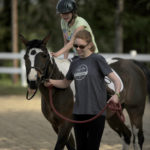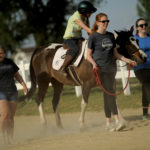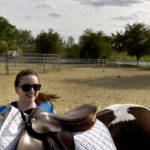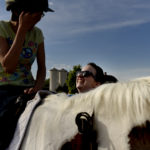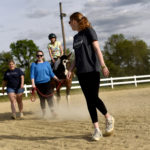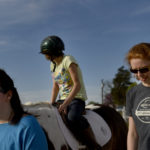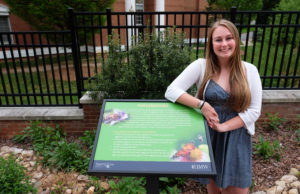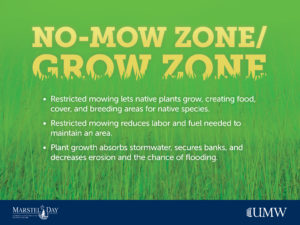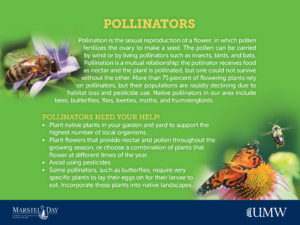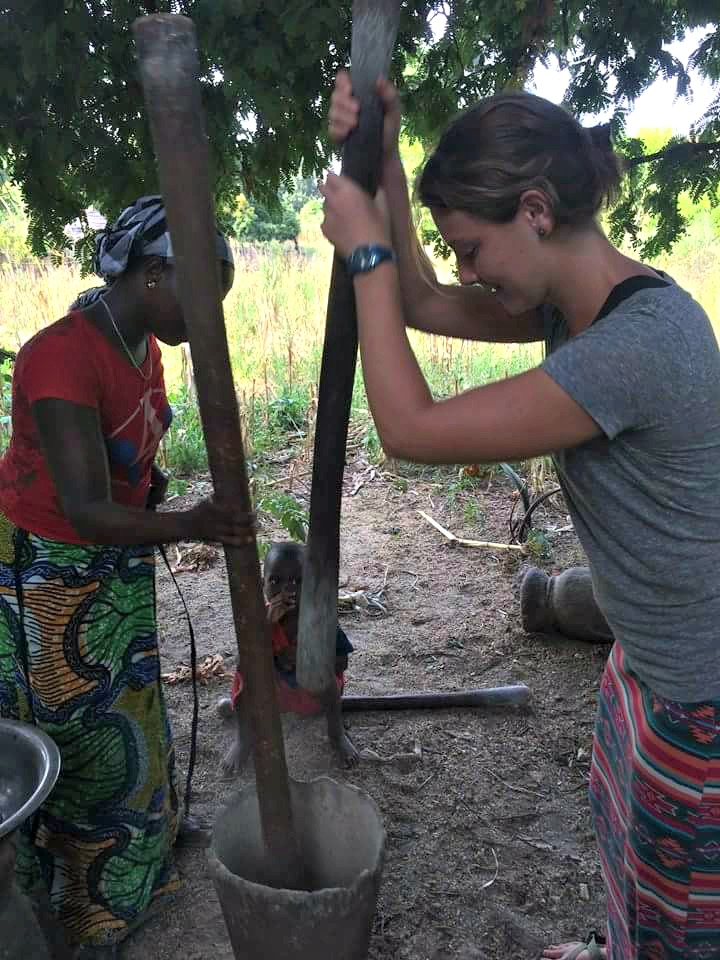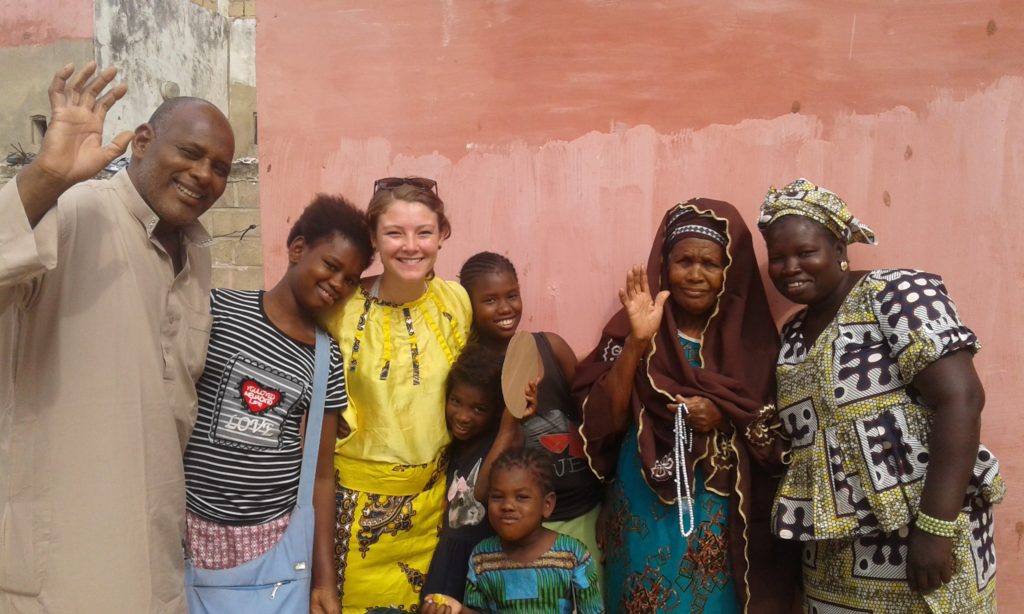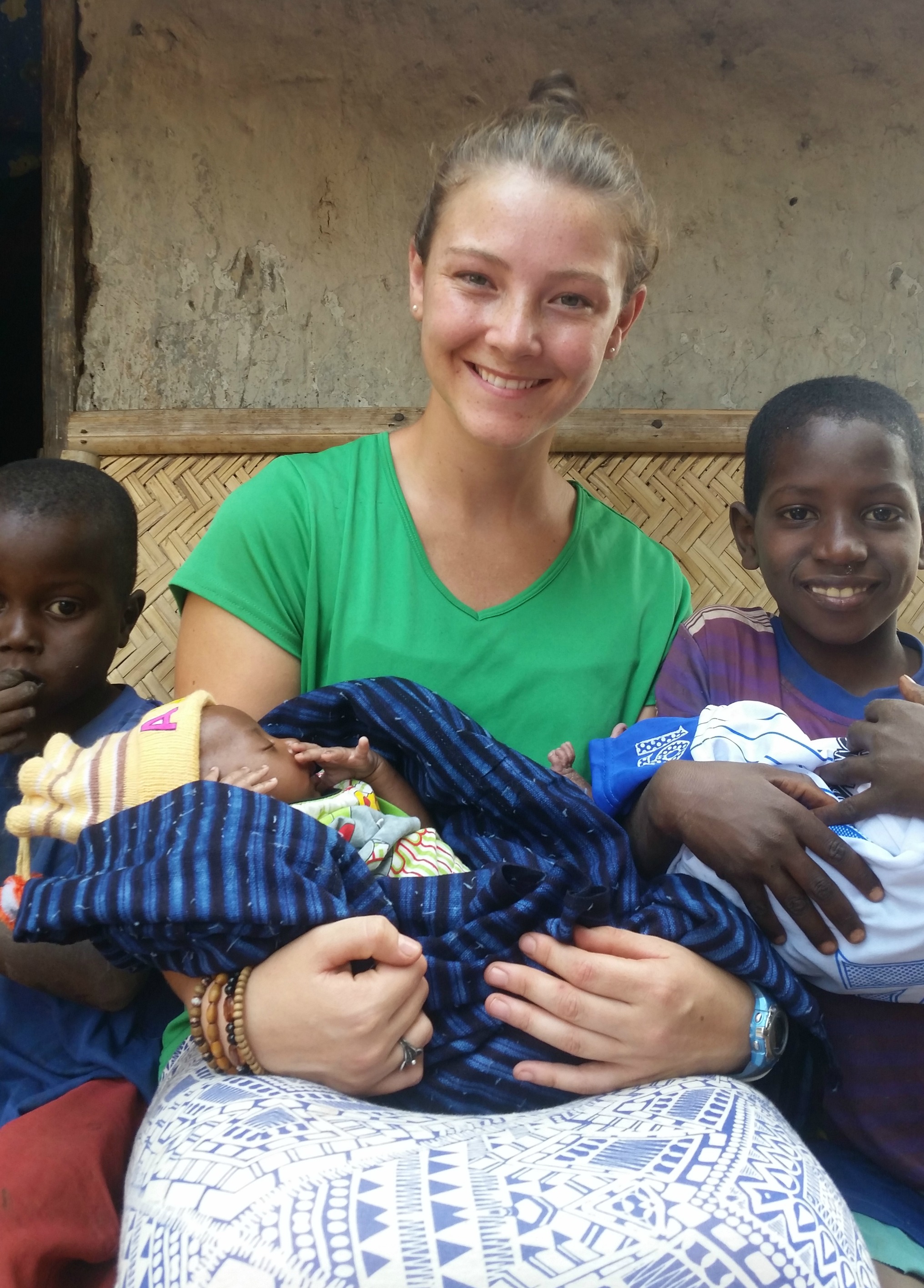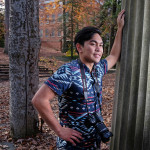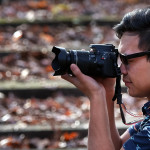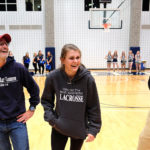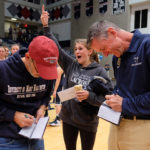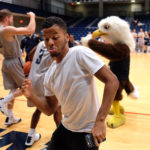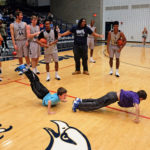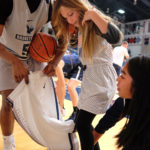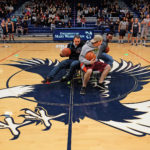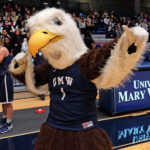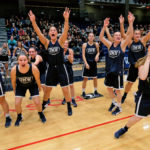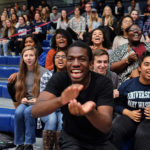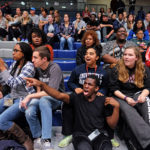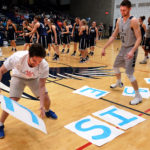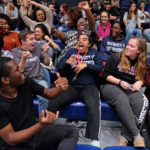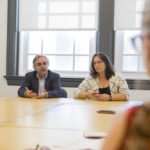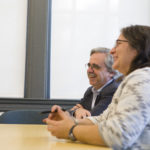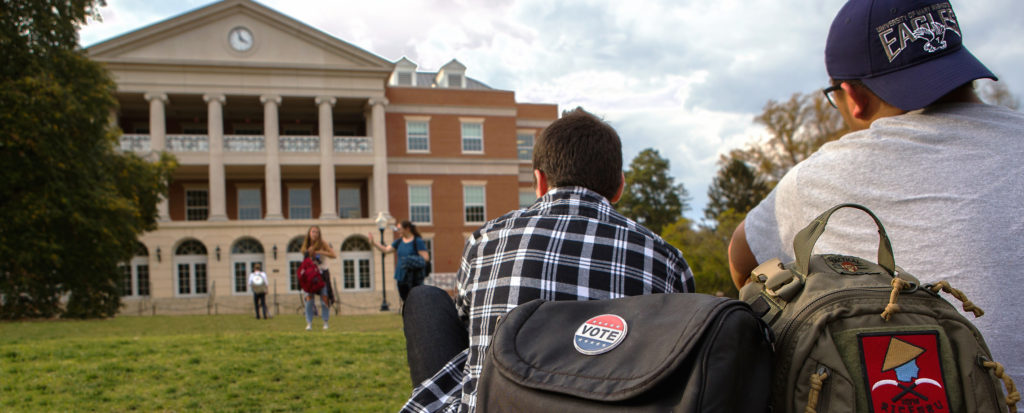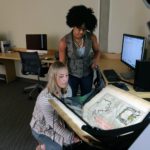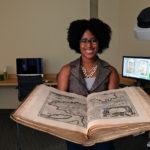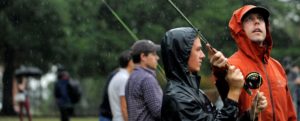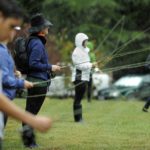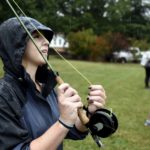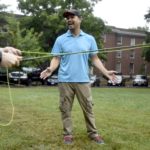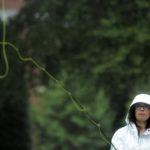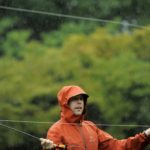On a warm spring evening, UMW sophomores Elizabeth Finto and Hannah Backe dress down for a night away from the library. Trading books for bridles, the girls head to nearby Hazelwild Farm, where they prepare to saddle up Penny, Marlin and Barney, three horses with big hearts and an even bigger purpose.
Host to Mary Washington’s varsity equestrian team, the only program of its type in Virginia, the Spotsylvania County farm offers another uniquely UMW opportunity – therapeutic horseback riding. Focused on rehabilitating riders of all ages with physical and mental disabilities, the Tuesday night lessons give students a chance to get involved and make a difference. And it’s often hard to tell who benefits more.
“The riders are teaching us to see the beauty in things, sing when we want to sing or do something random and throw societal norms out the window,” said Backe, an anthropology and international affairs major.
Open to UMW students through COAR, Community Outreach and Resources, the weekly riding lessons place student volunteers in one of two jobs: leaders, who guide horses around the ring, or side walkers, who walk beside mounted riders to provide balance, direction and comfort.
“Therapeutic riding at Hazelwild Farm has been going on for 10-plus years,” said sophomore Linnea Harding-Scudder, COAR leader for the therapeutic riding program. “We have riders in their 20s who’ve been coming since they were 8 or 9.”
With disabilities ranging from generalized anxiety and autism, to cerebral palsy, a neurological disorder that affects body movement and muscle coordination, the riders who come to Hazelwild often are looking to work on balance, control and self-confidence.
“[Maintaining a sense of] control is a big concern for people who struggle with disabilities, and horseback riding gives them that,” Backe said. “It also builds strength in core muscles while not putting too much stress on the body.”
Finto, a communications and digital studies major, said the weekly program gives her a sense of success and makes her feel proud.
Finto, who hails from Richmond, and Backe, who’s from Charlottesville, met in high school when they signed up for the same summer camp. They reignited their friendship as UMW freshmen, when they discovered they were neighbors in Virginia Hall. When they decided to volunteer together with therapeutic horseback riding, they never imagined they would fall in love with the program the way that they have.
Volunteers can spend hours each night, grooming and tacking the horses, working with riders, and cleaning up after everyone else has gone home. The horses do their part, too, helping riders with stability, strength, flexibility, motor skills, cognitive ability and more.
“The paring between child and horse is based on what the child needs,” said Backe. “Horses can sense your demeanor and how you’re feeling, and they will respond to it.”
One in particular, named Penny for the brown star-shaped mark on her forehead, is a favorite among riders. Her gentle and steady spirit is perfect for those who struggle with balance.
“A therapeutic horse has patience like no other and goes a step above and beyond to take care of its therapeutic rider,” said senior Catie Morton, weekly volunteer and UMW equestrian team captain. “I feel lucky to be part of such a wonderful program full of amazing volunteers, incredible horses and the coolest, sweetest kids I know.”
